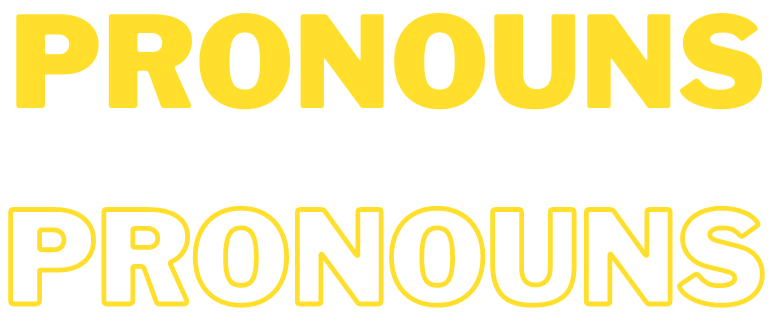Pronouns: Definition, Types and 500+ Examples
Pronouns are words that are used to replace nouns or noun phrases in a sentence. They help avoid repetition and make our language more concise and efficient. Pronouns can refer to people, objects, animals, or abstract concepts. Some examples of pronouns include “he,” “she,” “it,” “they,” “we,” “you,” “me,” and “him.” Pronouns can be further categorized into personal pronouns (e.g., “I,” “you,” “he,” “she,” “it”), possessive pronouns (e.g., “mine,” “yours,” “his,” “hers,” “theirs”), reflexive pronouns (e.g., “myself,” “yourself,” “himself,” “herself”), and many more.

Pronouns can be categorized into different types
Personal Pronouns:
These pronouns refer to specific people or things.
They include “I,” “me,” “you,” “he,” “she,” “his,” “her,” “it,” “we,” “us,” “they,” and “them.”
Check 100+ Examples below
Possessive Pronouns:
These pronouns indicate ownership or possession.
Examples include “mine,” “yours,” “his,” “hers,” “its,” “ours,” and “theirs.”
Check 100+ Examples below
Reflexive Pronouns:
These pronouns reflect back to the subject of the sentence.
They include “myself,” “yourself,” “himself,” “herself,” “itself,” “ourselves,” “yourselves,” and “themselves.”
Check 100+ Examples below
Demonstrative Pronouns:
These pronouns point to specific people or things.
Examples include “this,” “that,” “these,” and “those.”
Check 100+ Examples below
Interrogative Pronouns:
These pronouns are used to ask questions.
They include “who,” “whom,” “whose,” “which,” and “what.”
Check 100+ Examples below
Relative Pronouns:
These pronouns introduce relative clauses and connect them to the main clause.
Examples include “who,” “whom,” “whose,” “which,” and “that.”
Check 100+ Examples below
Indefinite Pronouns:
These pronouns refer to non-specific or unidentified people or things.
Examples include “anyone,” “someone,” “everyone,” “everything,” “nothing,” “somebody,” “nobody,” “anybody,” and “nothing.”
Check 100+ Examples below
Reciprocal Pronouns:
These pronouns indicate a mutual action or relationship between two or more people or things.
Examples include “each other” and “one another.”
Check 100+ Examples below
Examples of Pronouns
100+ Examples on Personal Pronouns:
I am going to the park. (I)
Can you play with me? (you, me)
Ooops!…. Unable to read further?
Read this page of Pronouns completely by buying our Premium Plan below
Plus get FREE Access to below content
100+ Video and Audio based English
Speaking Course Conversations
12000+ Text & Audio based Frequently used Vocabulary & Dialogues with correct pronunciations
Full Grammar & 15000+ Solved Composition topics on
Essay Writing, Autobiography,
Report Writing, Debate Writing,
Story Writing, Speech Writing,
Letter Writing, Expansion of Ideas(Proverbs),
Expansion of Idioms, Riddles with Answers,
Poem Writing and many more topics
Plus Access to the Daily Added Content
$2.00/mo



